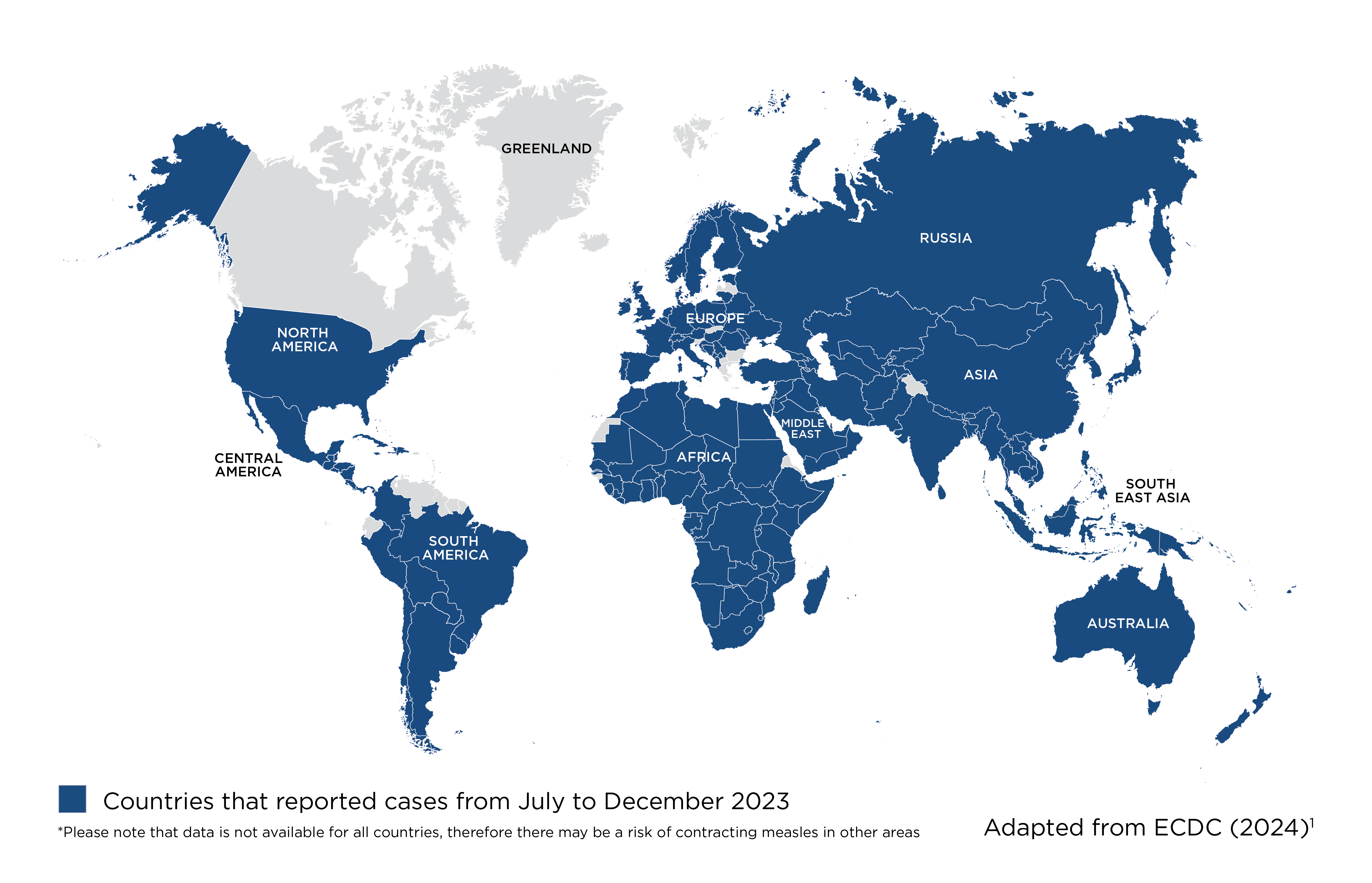If you are not immune and are in close contact with someone who has measles, there is an up to 90% chance you will catch the disease.2
Risk areas for Measles

FAQs
-
Key fact
-
How do you get measles?
By breathing in tiny droplets spread by the coughs and sneezes of people infected with the measles virus. The virus survives up to two hours on surfaces and in the air, so can also be picked up on the hands and then carried to the mouth, nose and eyes. People with the infection can spread the virus up to four days before or after the appearance of the rash.2
-
Which countries are affected by measles?
Measles vaccination significantly reduced deaths worldwide. But measles is still common in developing countries, especially in parts of Africa, Asia and the Middle East. Parts of Europe are also affected (see map).1,3
-
What are the symptoms of measles?
Coughs, sneezes and a runny or blocked nose; sore eyes; fever; small white spots inside the cheeks and on the back of the lips; patchy red rash, usually spreading from the face and behind the ears to the rest of the body.4
-
How serious is measles?
In most cases, the symptoms last about a week.4 But occasionally there are severe complications such as pneumonia (up to 1 in 20 children) and inflammation of the brain, known as encephalitis (up to 1 in 1,000 children).5
-
Can I prevent getting measles?
You can take the following precautions to help reduce your risk of infection:
- Visit your nearest convenient pharmacy or specialist travel health clinic for a risk assessment before your trip
- Avoid contact with people who have measles since the disease is highly infectious.2
Ready to get started? Check now for your nearest travel health clinic.
Get friendly advice from the UK's largest network of travel clinics*.
* This list is not exhaustive and other travel health providers are available.
References
- European Centre for Disease Prevention and Control. Threat Assessment Brief. Measles on the rise in the EU/EEA: considerations for public health response. February 2024. Available online: https://www.ecdc.europa.eu/sites/default/files/documents/measles-eu-threat-assessment-brief-february-2024.pdf (Last accessed May 2025)
- Centers for Disease Control and Prevention. How measles spreads. April 2024. Available online: https://www.cdc.gov/measles/causes/ (Last accessed May 2025)
- World Health Organisation. Factsheets. Measles. November 2024. Available online: https://www.who.int/news-room/fact-sheets/detail/measles (Last accessed May 2025)
- NHS.Conditions A to Z. Measles. February 2022. Available online: https://www.nhs.uk/conditions/measles/ (Last accessed May 2025)
- Centers for Disease Control and Prevention. Measles Symptoms and Complications. May 2024. Available online: https://www.cdc.gov/measles/signs-symptoms/ (Last accessed May 2025)
UK-BOTB-2500033 May 2025
